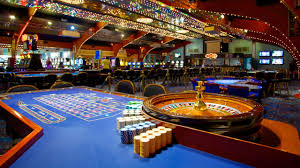Minesweeper creates unique gaming environments where success depends entirely on careful observation and logical analysis rather than chance or reflexes. The game teaches players to extract meaningful information from numerical clues while developing systematic approaches to problem-solving that reward attention to detail. Players interested in puzzle-solving techniques and observation skill development can check my blog for comprehensive guides on minesweeper strategy and cognitive skill building through gaming applications.
Pattern recognition mastery
- Successful minesweeper play requires developing ability to recognize common number configurations indicating specific mine placement patterns around grids. These patterns become second nature to experienced players, allowing rapid assessment of grid sections without laborious analysis of individual squares.
- Corner configurations, edge scenarios, and central grid formations each produce characteristic numerical signatures that trained observers identify instantly. Development of this pattern vocabulary allows efficient clearing of large grid areas while maintaining accuracy in mine detection.
- Complex multi-square patterns require synthesis of information from several numbered squares simultaneously, challenging players to maintain awareness of multiple relationships across different grid sections.
Logical deduction development
Minesweeper teaches systematic logical reasoning through scenarios where careful analysis of available evidence leads to definitive conclusions about mine locations. Unlike games involving guesswork, every solvable minesweeper configuration can be completed through pure logic.
- Sequential elimination processes – Players learn to systematically rule out impossible mine locations based on numerical constraints from surrounding revealed squares.
- Contradiction testing methods – Proposed mine placements must be verified against all adjacent numbered squares to ensure consistency with observed evidence.
- Probability evaluation skills – When logical deduction reaches limits, players must assess relative probabilities of mine placement in remaining uncertain squares.
Attention to detail cultivation
Single careless clicks terminate entire games, creating strong incentives for careful consideration of each decision. This consequence structure teaches players to slow down and thoroughly examine available information before taking action. The game rewards methodical approaches over impulsive clicking, developing habits of verification and double-checking that improve decision-making accuracy. Players learn to question initial assumptions and seek confirming evidence before committing to potentially dangerous moves. Error prevention becomes as important as problem-solving, teaching players to develop personal systems for avoiding mistakes through careful observation and systematic analysis.
Information synthesis abilities
Complex minesweeper scenarios require combining evidence from multiple sources across grids to reach valid conclusions. Individual numbered squares provide limited information, but their collective evidence creates comprehensive mine distribution knowledge. Players must maintain global awareness of grid conditions while focusing on local problem-solving, developing cognitive flexibility enabling simultaneous thinking at different analytical scales. Integration of local and global information teaches players to balance immediate tactical decisions with overall game awareness of remaining grid challenges.
Progressive complexity adaptation
Beginner grids introduce basic observation principles through straightforward scenarios with clear logical solutions, while expert levels demand sophisticated analytical thinking challenging experienced players. Gradual increases in grid size and mine density require players to scale observation and analysis capabilities to handle increasingly complex information processing requirements. Advanced minesweeper often requires probability-based decision-making when logical certainty becomes impossible, teaching players to make informed choices under uncertainty while maximizing success probability.
Observation and analytical abilities developed through minesweeper apply to numerous activities requiring careful attention to detail and systematic problem-solving. Players often report improved performance in debugging, data analysis, and investigation tasks. Minesweeper rewards careful observation skills by creating environments where attention to detail, logical reasoning, and systematic analysis directly determine success or failure. The game structure ensures every numerical clue contains valuable information and that careful observation consistently leads to better outcomes than hasty decision-making. Through progressive difficulty and immediate feedback, minesweeper develops cognitive abilities enhancing analytical thinking while providing engaging entertainment.





Leave a Reply